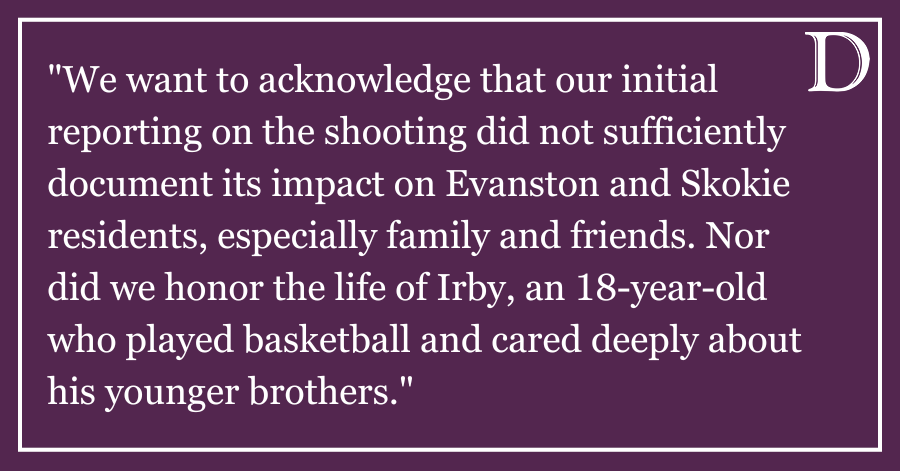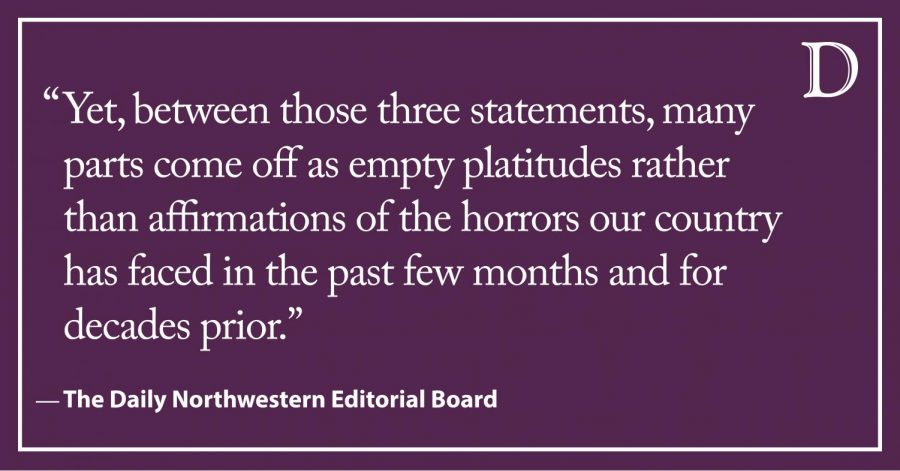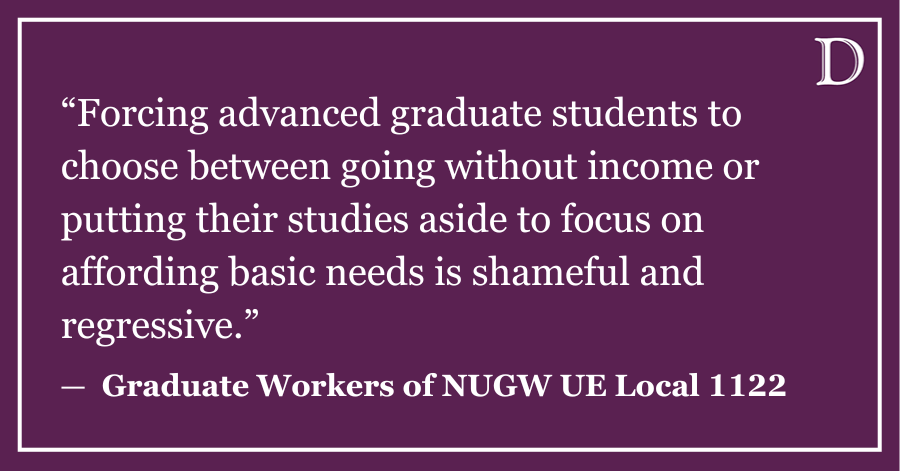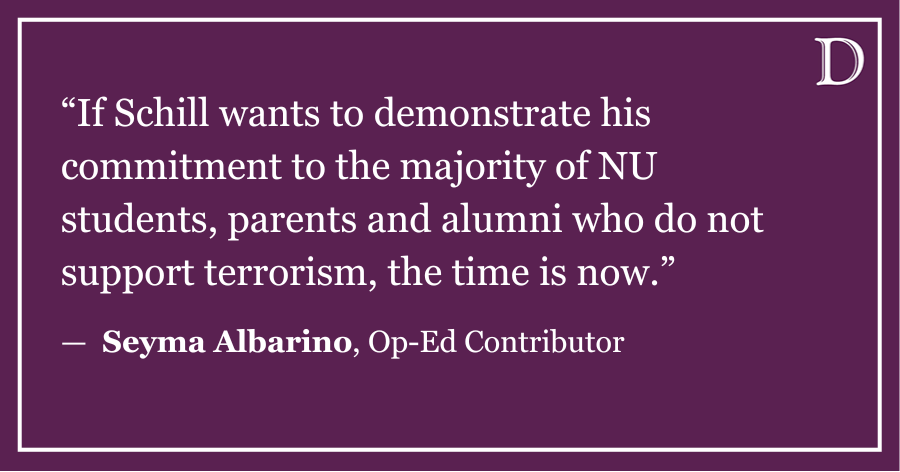And so, once again, we are talking about race at Northwestern.
The latest spark to what seems to be a never-ending flame was a Facebook dialogue that surfaced last week between Northwestern trustee Ben Slivka and Weinberg sophomore Pleshette Strong.
“White male privilege? Why are you getting all racist on your FB wall?” Slivka asked Strong to open the conversation, shortly after the student posted a status criticizing former Massachusetts Gov. Mitt Romney’s behavior during the first presidential debate.
It is difficult for a productive discussion to ensue when the opening foray is such a personal accusation of racism. Unfortunately, it seems these heated words are all too common when we discuss issues of diversity on this campus. Everyone wants to talk, but nobody wants to listen. And so we have created a perverse, artificial conversation in which people who are passionate about these issues speak with an absolutism that shuts down discussion. Others are scared to ask a question for fear of being publicly labeled racist.
These issues affect too much of this campus for so many voices to stay silent. All students have a responsibility to participate in discussions on issues affecting the entire campus. Many more of us, for instance, went to a forum two years ago on the “brothel law” than have attended one of the many forums on diversity. Much of the student body can perceive the impact Evanston ordinances have on off-campus life better than they can the extent to which race impacts everyday life for all of us — instead of just the minority students among us.
But those who are angry about the state of affairs must do a better job of creating safe spaces in which to have productive conversations. We must remember that every student has a unique, but not subordinate, perspective, and that no student should be afraid to share their own experiences and risk having their character disparaged. No discussion of diversity should be distilled down to black versus white, ignoring the multitude of minorities and intersectionalities that exist on this campus.
And as the tone of the conversation must change, so must the goals. It is not good enough for the administration to host another forum, commission another report or create another administrative position. Certainly, these can be enlightening in demonstrating the distance we have to go before we are indeed One Northwestern. However, we too often fall into the trap of being satisfied with ourselves simply for talking.
Students have called for and received new administrators, but racial issues have not been resolved. We push the University into taking artificial measures that they can put in viewbooks, but which clearly have not translated into a more inclusive Northwestern. We haven’t seen any major changes, or even major plans that might lead to change.
It’s time for a new conversation. We need to hold our administrators accountable and take the higher ground when they are beginning unproductive discourses, but we also need to be frank with ourselves about what our endgame can and should be. Until we come to terms with what we aim to accomplish by having these discussions, we will continue, like Strong and Slivka, to fail in our searches for common ground.
This problem is, at the end of day, rooted in student culture, and therefore requires student change. Discussion participants can’t fall back on buzzwords like “white privilege” or “colorblind” and be surprised when their arguments are scrutinized for lack of detail, and they can’t fall back on calling people who disagree “racists.” A movement that requires consensus must allow everyone a seat at the table. There are legitimate reasons for anger, but anger that is allowed to remain emotion and not channeled into positive change is anger that will remain unfulfilled. Participants on both sides of the debate would do well to turn emotion into productivity.
There is a fine line between educating someone and talking down to them. All of us are at Northwestern for an education. We all have a responsibility to look to other students for that learning, and we hope that those who can teach us are able to do so in a productive manner.
This editorial is the opinion of the following members of The Daily’s editorial board: Marshall Cohen, Devan Coggan, Michele Corriston, Joseph Diebold, Susan Du, Paulina Firozi, Kaitlyn Jakola, Tanner Maxwell, Tom Meyer, Christine Nguyen, Megan Patsavas, Kimberly Railey, Lydia Ramsey, Dan Ryan, Patrick Svitek and Josh Walfish.








